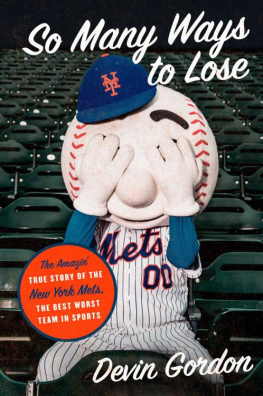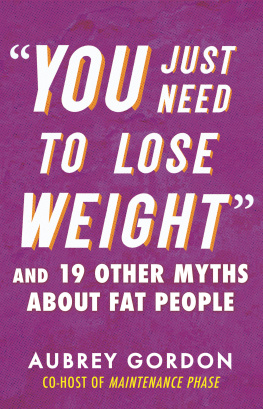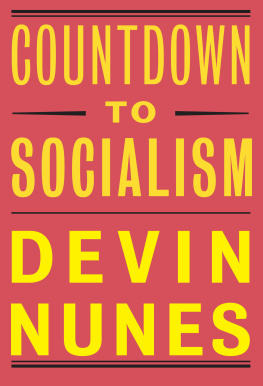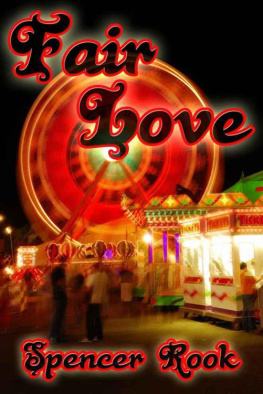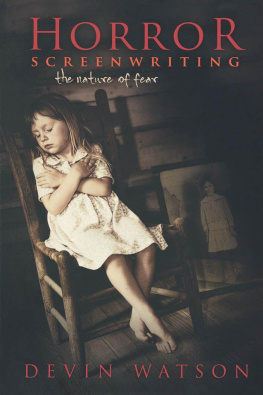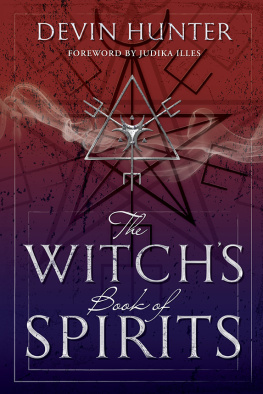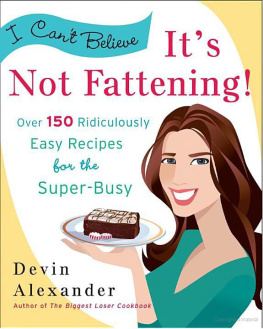Devin Gordon - So Many Ways to Lose
Here you can read online Devin Gordon - So Many Ways to Lose full text of the book (entire story) in english for free. Download pdf and epub, get meaning, cover and reviews about this ebook. year: 2021, publisher: HarperCollins, genre: Detective and thriller. Description of the work, (preface) as well as reviews are available. Best literature library LitArk.com created for fans of good reading and offers a wide selection of genres:
Romance novel
Science fiction
Adventure
Detective
Science
History
Home and family
Prose
Art
Politics
Computer
Non-fiction
Religion
Business
Children
Humor
Choose a favorite category and find really read worthwhile books. Enjoy immersion in the world of imagination, feel the emotions of the characters or learn something new for yourself, make an fascinating discovery.
- Book:So Many Ways to Lose
- Author:
- Publisher:HarperCollins
- Genre:
- Year:2021
- Rating:3 / 5
- Favourites:Add to favourites
- Your mark:
- 60
- 1
- 2
- 3
- 4
- 5
So Many Ways to Lose: summary, description and annotation
We offer to read an annotation, description, summary or preface (depends on what the author of the book "So Many Ways to Lose" wrote himself). If you haven't found the necessary information about the book — write in the comments, we will try to find it.
So Many Ways to Lose — read online for free the complete book (whole text) full work
Below is the text of the book, divided by pages. System saving the place of the last page read, allows you to conveniently read the book "So Many Ways to Lose" online for free, without having to search again every time where you left off. Put a bookmark, and you can go to the page where you finished reading at any time.
Font size:
Interval:
Bookmark:
FOR YNG AND SADIE AND WES.
AND ENDY CHVEZ.
THE SIGHT OF RAY KNIGHT rounding third base with the winning run of Game 6 in the 1986 World Series against the Boston Red Soxcompleting a two-run, two-out, two-strike comeback in the bottom of the tenth inningwas the greatest moment of my life, and I have two kids. I will cherish the memories of my sweet gorgeous magical children drawing their first breaths until the day I draw my last. Ill just cherish them ever so slightly less than my memories of that Game 6.
I was ten years old, and it was after midnight, and Id already bleated so many times during the first nine and a half innings that I was under penalty of death if I woke up anyone else. By the top of the tenth, the noises coming out of me had turned dark and guttural. The Mets were down three games to two. A loss here tonight would end the series, and my childhood. Then right away in the top of the tenth, Red Sox outfielder Dave Hendu Henderson, whod crushed us that whole series, crushed the second pitch so hard off the faade above the left-field wall that it ricocheted 50 yards back into left-center.
He hit that ball so hard that its essence went clean through my chest, and I didnt feel it until I saw the baseball-sized hole where several of my vital organs used to be. Phonetically, the sound I made was nngyuuuh. It was the sound of a ten-year-old boy learning that life is shit. Boston up 43. And then as the light in my eyes went out, Sox third baseman Wade Boggs clubbed a double in the gap, followed by light-hitting second baseman Marty Barrett singling him homeBarretts twelfth hit in six games, lifting his World Series batting average to .418. Boston up 53. Game over. Childhood over.
Knowing what I know now, about life, about losing, about giving your heart to a team like the Mets, I ache for those Red Sox fans, belligerent and insufferable as they were, because they were already doomed by the time Bill Buckners error at first base made it official. And it wasnt even their fault. It was NBCs. With the bases empty and the Mets down to their final out, vegetative but still clinging to life, Vin Scully committed an act of epistemological hubris that is rarely noted in accounts of baseballs most storied comeback: he announced that Marty Barrett had been named the NBC Miller Lite Player of the Game.
Miller Lite is happy to present a check for a thousand dollars in the name of Marty Barrett to the National Multiple Sclerosis Society, Scully declared, closing the book on this postseason. Marty had three singles and two walks. Handled everything hit his way.
He sure did, right up until the senseless dare that Scully and NBC and Miller Lite and the National Multiple Sclerosis Society issued to the baseball gods by naming a Player of the Game before the game was over.
Twelve minutes later, Mookie Wilsons hard grounder snuck through Buckners legs, and the Mets won 65. As I processed what was happening, I uncorked one of those silent shrieks where youre going berserk but no sound is coming out. The clashing forces of the air trying to leave my body and me trying to keep the sound in caused a sudden rush of oxygen into my head. I remember the feeling of my brain expanding in my skull and getting super warm as Ray Knight stomped on home plate, and I know for certain that if it happened again today, I would stroke out.
SO MANY BASEBALL fans I know have heartwarming stories about how they fell for their favorite teamsa family saga, an iconic moment to which they bore accidental witness. For me, a key factor was color schemes. The Yankees were drab and gray. They radiated no fun. The Mets were orange! and blue! and the NY on their caps sprouted soft round serifs, like muffin tops. The Yankees logo was all sharp elbows, and didnt anyone else find it unsettling that their pinstripes looked like prison uniforms? Like they were playing for their lives? My parents both grew up in the Bronx, an irony Ive always savored, but they split up when I was six. By the time I fell for baseball, I was only seeing my father a few times a month, which was sad for my childhood but a godsend for my baseball future because it liberated me to choose my own destiny. I can see clearly now that baseballsportswas a balm for loneliness, a way to be in the company of men and learn codes and rituals and feel a part of a group, however vicariously. In the real world, I didnt know anything about men and didnt get to spend much time in their company. I learned about men from baseball.
I learned, God help me, from the Mets.
Id like to think that the Mets chose me, in recognition of a kindred spirit, as much as I chose them. What really clinched it, though, wasnt my ardor for their Day-Glo colors, or my sense that Id found my tribe. If I drew up a pie chart, those factors would take up about 25 percent. The other 75 percent, the number one overwhelming reason why Im a Mets fan, is that I was seven years old and the Mets had a player named Strawberry. Thats really all it took.
The 1986 Mets had a warping effect on my psychology as a Mets fan, imbuing me with a capacity for endlessly self-replenishing optimism even when it was unwarranted by facts or logic. When Id first fallen in love with baseball a few years earlier, the Mets were emerging from one of their most brutal stretches as a franchise, but I didnt know about any of that. I just knew they were bad. Id heard Dave Kingmans name, and I was old enough to discern that everyone thought he was a prick. Id watched the grainy footage they always showed during rain delays on WWOR of Casey Stengel in his inflatable Mets uniform doing his stand-up act. I knew about 1962, the worst team there ever was. I knew about 40 wins and 120 losses. But I was far too young to grasp how rare and special the Mets 1986 season was. Itd been thirteen years since their last trip to the World Series, in 1973, when they lost to the dynastic Oakland Athletics in seven games, but I knew there were plenty of fan bases thatd been waiting far longer, including some thatd been waiting forever. Besides, for as long as Id been watching baseball, the Mets had been good. My first three seasons as a fan just so happened to coincide with the Mets first run of three consecutive 90-win seasons. As far as I was concerned, the 1989 season, when the Mets won just 87 games and finished second in the National League East, was a catastrophe. How nave I was.
Ive never shaken it. Almost 40 years now Ive been like thisstupid, delusionaland I love it. Its so much more fun than being one of those long-suffering Red Sox fans who dont know what to do with themselves now that the Red Sox are the Yankees. But that 86 team was also the beginning of my true education as a Mets fan, and the first lesson I learned was that 1986 was the anomalythe one and only time in Mets history when the Mets were the juggernaut. Only in retrospect did it become clear what a bunch of drunks and criminals and ticking time bombs so many of them were, and how inevitable it was that theyd blow apart in spectacular fashion. By the late 1980s, it was like watching the third act of Fargo, with Dwight Gooden vanishing and Kevin Mitchell shoving teammates into a wood chipper.
I didnt have the wisdom to understand this at the time, but the World Series, the winning, the dominance, the champagne in the locker roomthat wasnt the Metsy part of the 86 story. The Metsy part was everything that came next.
CONTRARY TO EVERYTHING youve been told about the New York Mets, everything you thought you knew, contrary to what you mustve expected when you picked up this book, this is not the story of a bad team. The Mets are not bad. Listen. Theyve been bad at times in the past, lets call it more often than not, including the all-time record for being bad the most times in a single season. But badness is not what defines the Mets as a franchise. There is a difference between being
Font size:
Interval:
Bookmark:
Similar books «So Many Ways to Lose»
Look at similar books to So Many Ways to Lose. We have selected literature similar in name and meaning in the hope of providing readers with more options to find new, interesting, not yet read works.
Discussion, reviews of the book So Many Ways to Lose and just readers' own opinions. Leave your comments, write what you think about the work, its meaning or the main characters. Specify what exactly you liked and what you didn't like, and why you think so.

